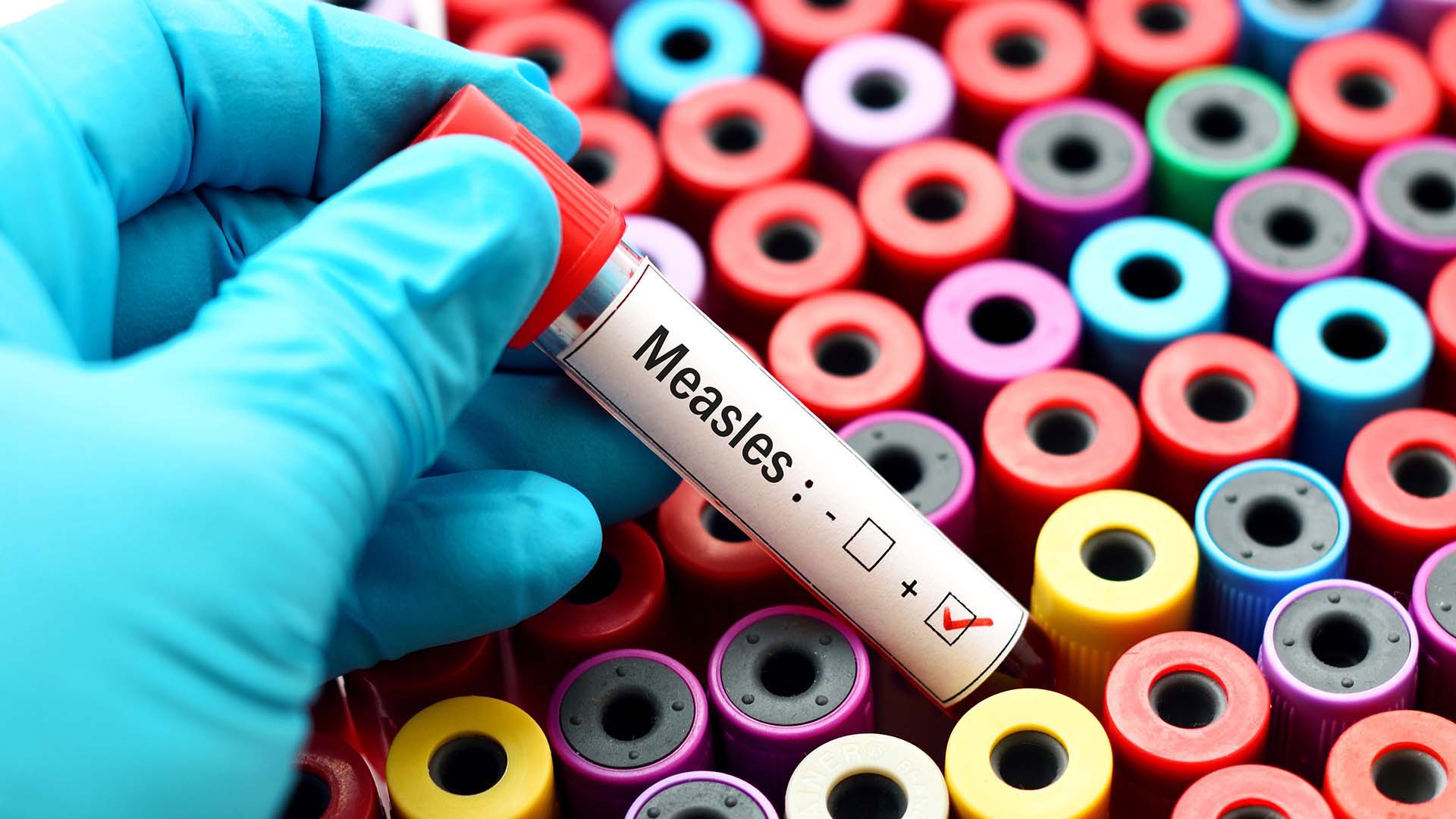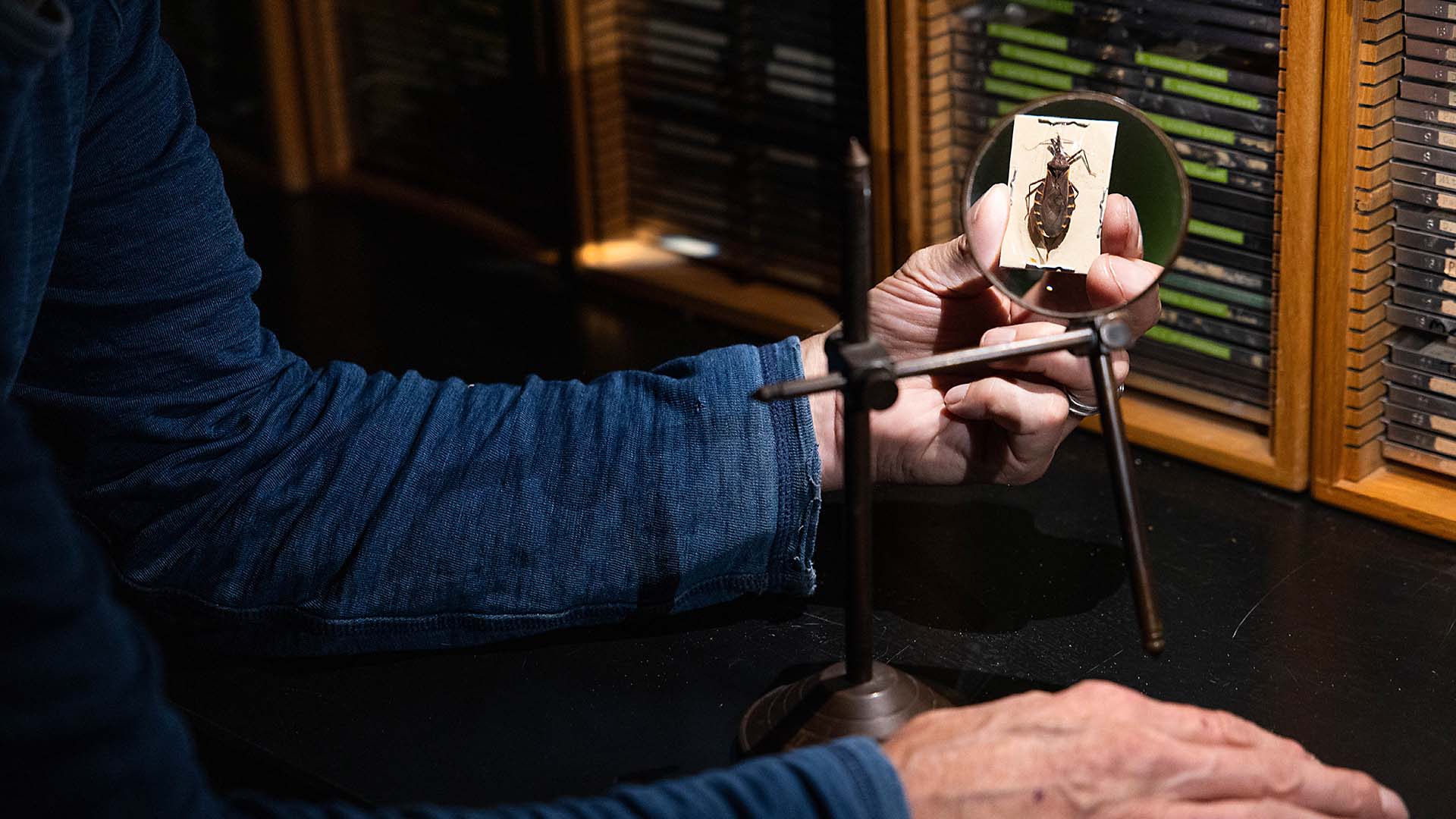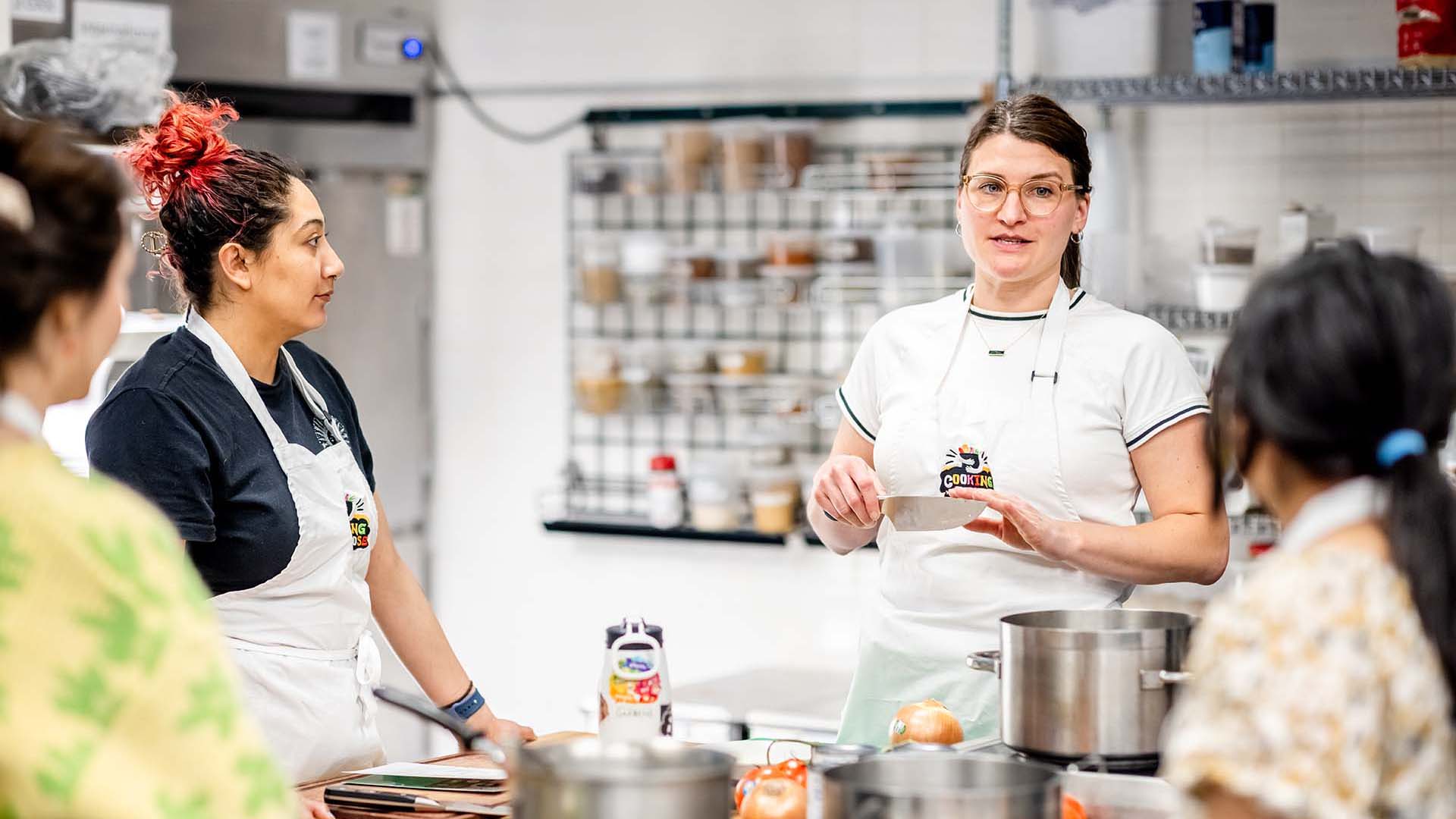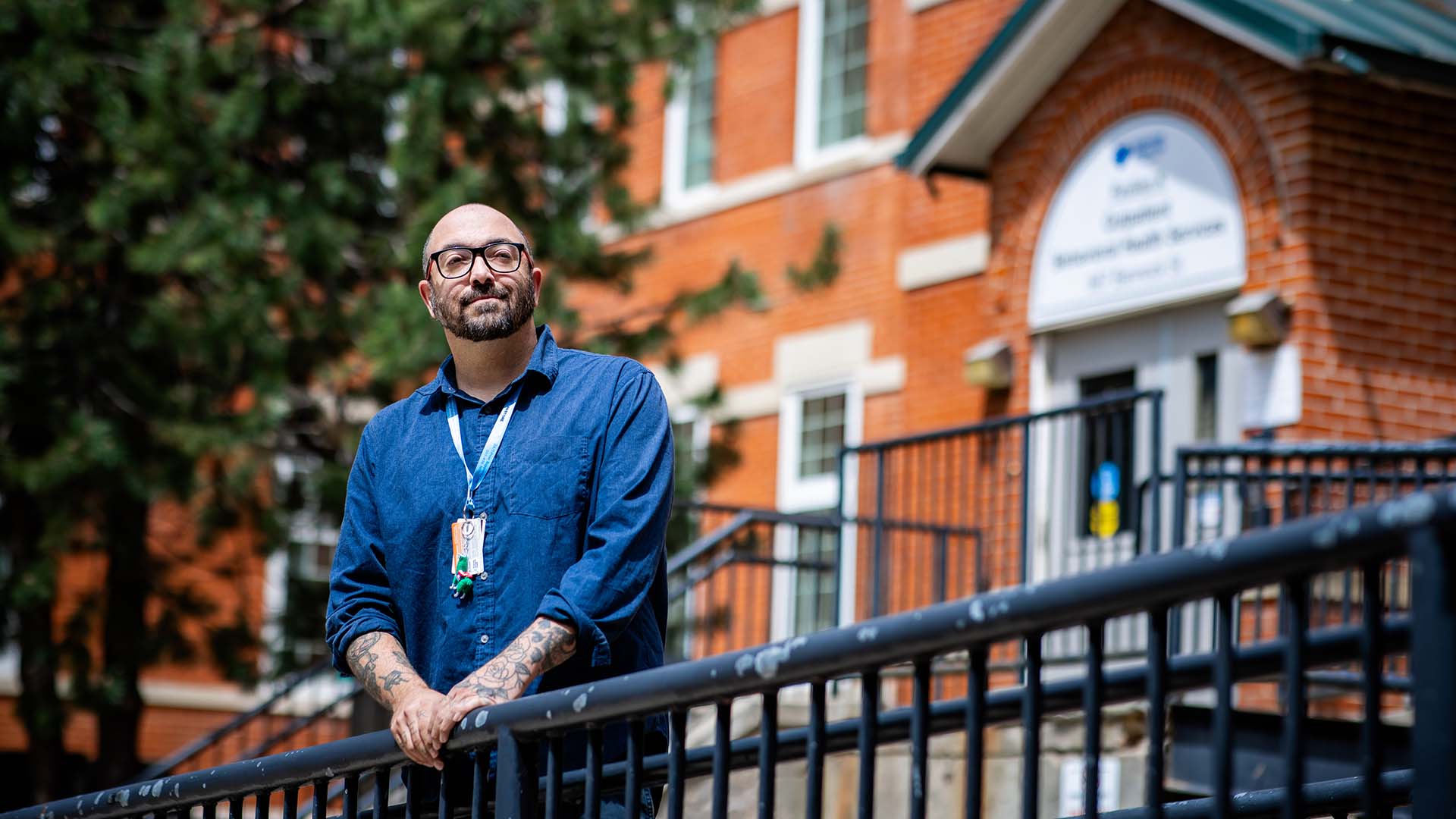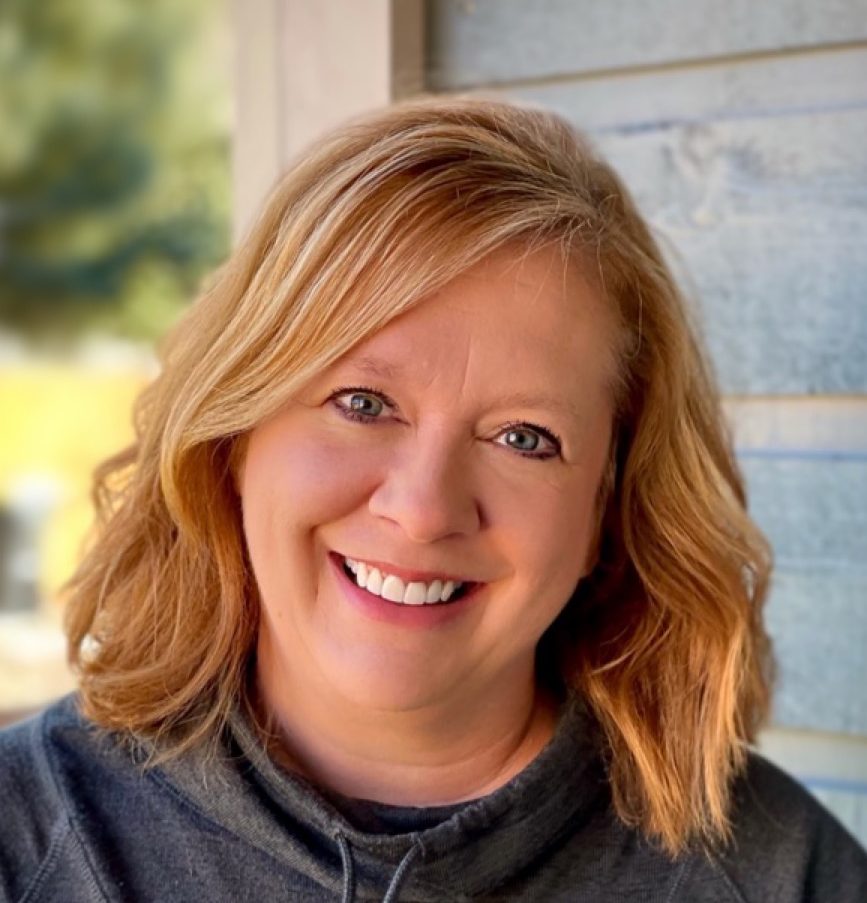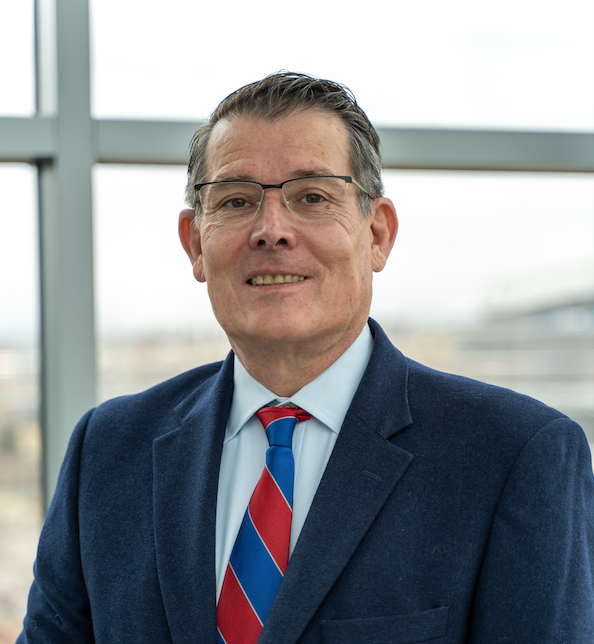Banking on the future of health care
New Health Scholars Program guides more Latino students into high-demand jobs where they are desperately needed.
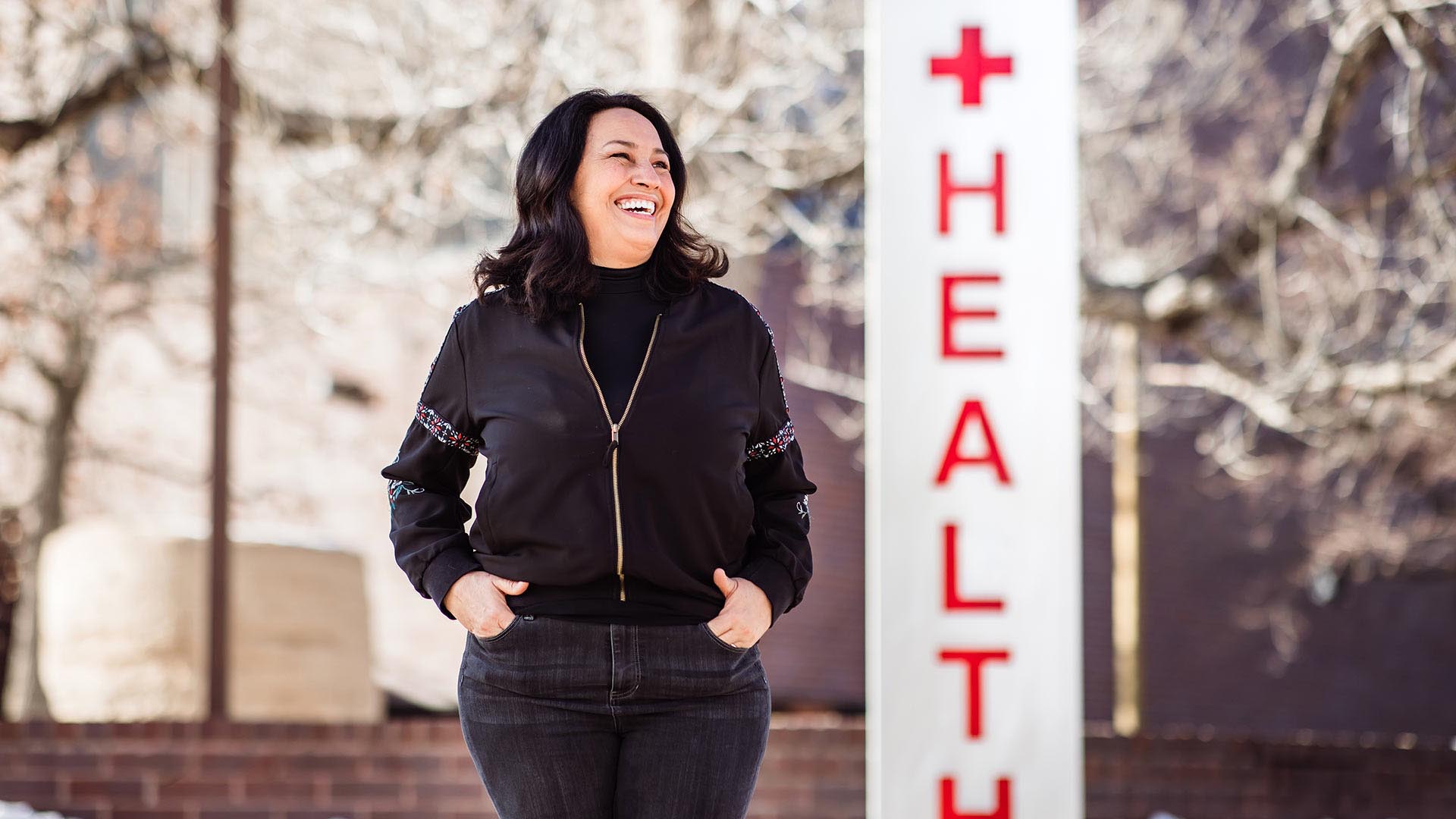
When the last of her five children began school, Maria Bernadette Freyta, 56, embarked on a new career journey that focuses on promoting a healthy lifestyle to prevent and treat chronic diseases while addressing health disparities.
But too often in Latino communities like those her family grew up in, mistrust of health care providers exacerbates those disparities, as Freyta experienced firsthand during a recent health scare with her elderly parents.
“We grew up waiting until we got to the worst possible point before going to the doctors,” Freyta said. “Many of us wouldn’t tell providers about symptoms because they wouldn’t necessarily understand or believe us.”
A senior in Metropolitan State University of Denver’s Lifestyle Medicine program, Freyta wants to cultivate trust and improve health outcomes in her community. That goal is getting a boost from the Bank of America Scholars Program, which aims to help Latino students enter health care fields.
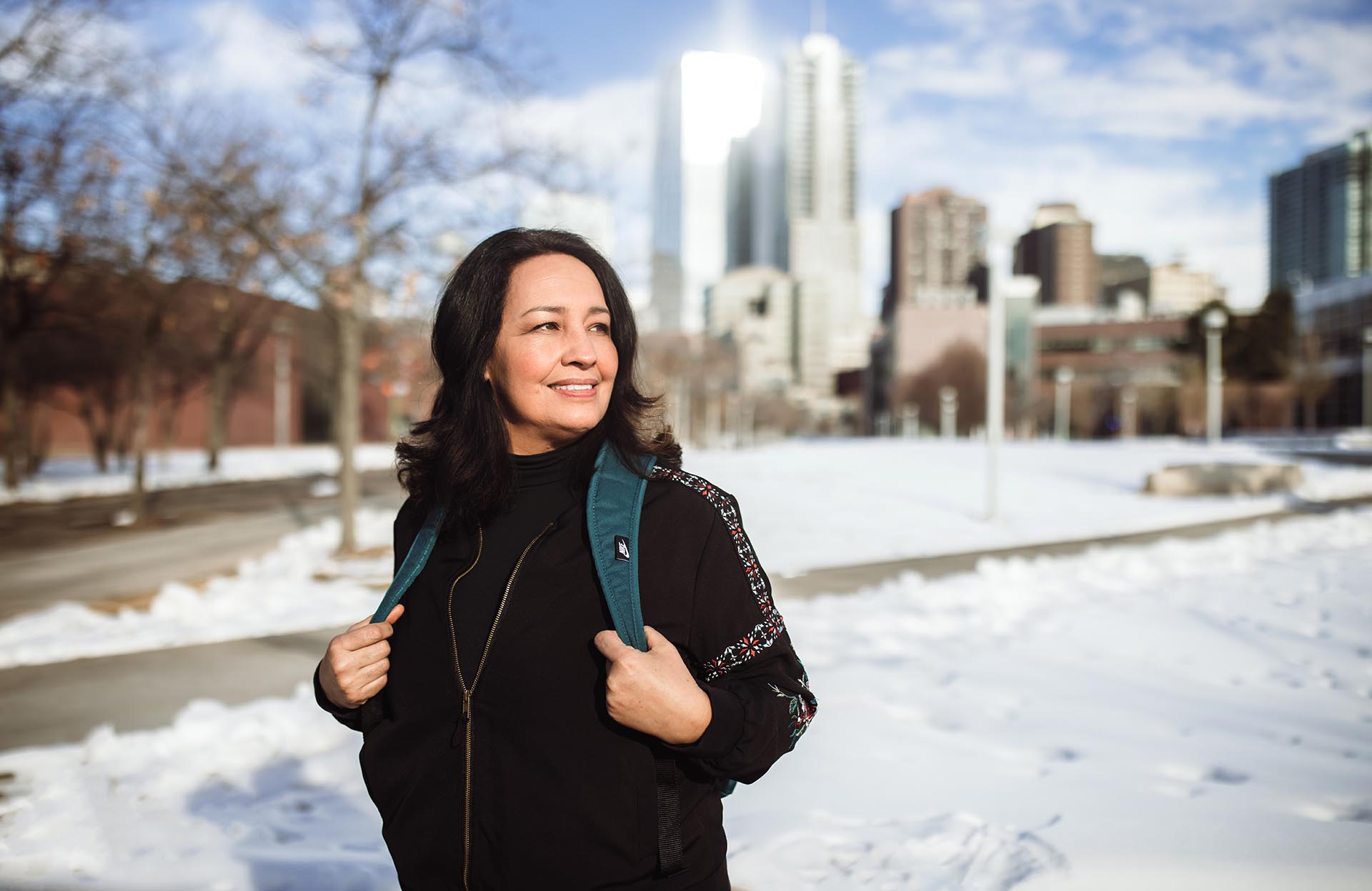
MSU Denver is one of 12 institutions of higher learning across the country that received funding from Bank of America as part of Progresando, a corporate initiative to advance racial equality and economic opportunity.
Patients receive better care from practitioners with a shared racial or ethnic background, yet a shortage of physicians from underrepresented populations has led to a disproportionate number of medical practitioners available to serve them. Only 23.1% of Latino adults reported sharing a racial, ethnic or language background with their health care providers, compared with 73.8% of white respondents, according to recent data from the Urban Institute.
The Bank of America program supporting Latino students is among several Health Scholars Programs in MSU Denver’s Health Institute, a collaboration of 10 health-related departments across campus that aims to bolster the state’s health care workforce while closing gaps to access.
RELATED: Federal grants support future mental-health professionals
Health Scholars Programs provide wraparound support services, scholarships and targeted programming to students in an effort to improve their chances of academic and career success.
“These programs give us the opportunity to scale and reach more students,” said Emily Matuszewicz, Health Institute director of Development and Partnerships. “This is especially vital with historically underrepresented populations coming into higher education looking to give back and serve in needed professions.”
Health Scholars Programs have increased student retention, especially for underrepresented groups, undocumented students and low-income students, according to Health Institute enrollment data. Of those students who completed Health Scholars Programs, 94% continued their studies the following semester or graduated.
Led by full-time advisors known as health-career navigators, students are guided through their academic programs and into high-demand fields that “desperately need more diverse representation,” said Sammy Chumacero, the navigator for the Bank of America Scholars Program.
“The workforce needs more doctors and nurses, as well as behavioral-health professionals, nutritionists, community-health practitioners and so much more,” Chumacero said. “Health is very personal, and when you’re talking to someone who looks like you and sounds like you, who understands your background and stigma around certain topics, it’s a lot easier to provide services and support.”
RELATED: Our nurse supply is running out
Bank of America’s $250,000 investment in MSU Denver’s Health Scholars Program is being used to support Chumacero’s role and to hire student peer leaders such as Freyta, who help manage the program and mentor other students. The funding will also provide stipends to support students and pay for career-related uniforms and supplies.
Freyta called the program “life-changing.”
“I didn’t see myself as someone who could necessarily make a difference,” Freyta said. “But thanks to MSU Denver, I realize how much impact I can have as a mentor and that we really can empower one another.”
|
For more information on the Bank of America Scholars Program, contact Emily Matuszewicz or Sammy Chumacero.
|
|
Another peer leader, Melissa Perez Luna, is also sold on the program.
Perez Luna, an undocumented DACA student who was brought to the U.S. from Mexico by her parents when she was 5 years old, was drawn to MSU Denver after learning about the support services provided by the University’s Immigrant Services Program and Health Scholars Programs.
A senior Psychological Sciences major with a minor in Spanish, Perez Luna sees her mentorship role in the Bank of America Scholars Program as an opportunity to pay it forward to others who may be in the same shoes as she once was.
“All my life, I’ve seen how incredible it is to help your community,” she said. “Having to do things by yourself is so isolating, but now that I get to help others like me, it’s a wonderful feeling.”

